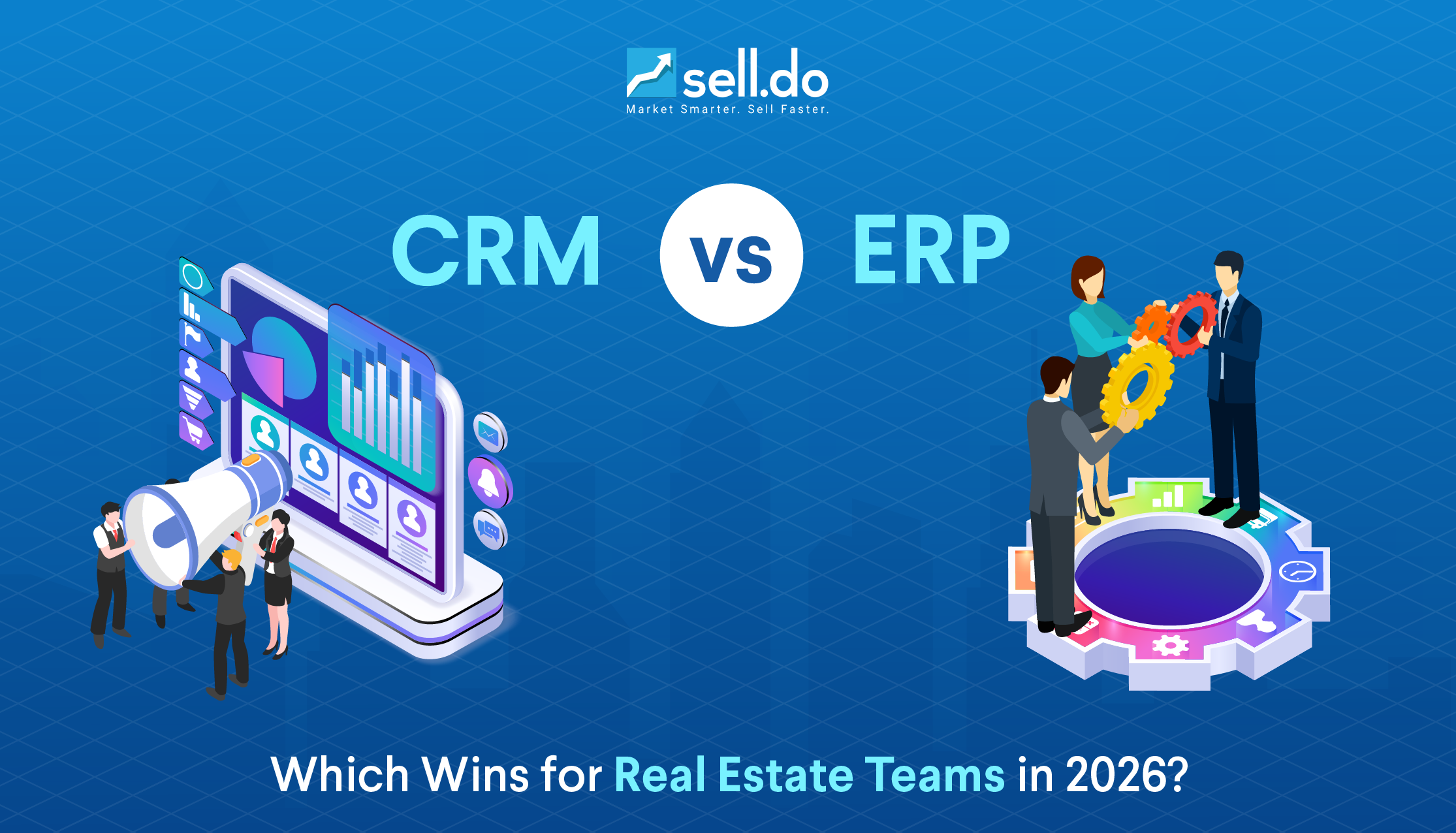Real estate in India has always been seen as one of the most reliable investment options. But while demand continues to grow, the process of buying, selling, or investing in property hasn’t changed much in decades. It's still slow, expensive, and out of reach for many. For developers and brokerage firms, this creates its own set of challenges—large-ticket sales, limited investor pools, and long transaction cycles.
At the same time, the way people invest is changing. New-age investors are more comfortable with digital assets, expect transparency, and want faster, more flexible ways to put their money to work. This shift is pushing the real estate sector to rethink how ownership can be offered—and more importantly, who can access it.
That’s where a new model is starting to take hold: offering fractional ownership through digital tokens. This method uses technology to break down property value into smaller, tradable units. It gives developers access to more investors while offering buyers a chance to own a share in real estate without purchasing an entire unit.
This concept is called real estate tokenization. This guide will help you understand how it works in practice and what role it could play in the future of Indian real estate.
What is Real Estate Tokenization
Real estate tokenization is a modern way of investing in property, without needing to buy the entire thing. Think of it like this: instead of owning a full apartment or commercial space, you can own a fraction of it in the form of a digital token.
These tokens are created using blockchain technology. Each token represents a small share of the property, and multiple people can invest in the same asset. So, if a property is worth ₹10 crore, it can be divided into thousands of tokens. You can buy a few tokens for as low as ₹10,000 or ₹50,000, depending on the platform, making real estate more accessible for everyday investors in India.
The process runs on blockchain, which is like a secure digital ledger. Every transaction is recorded and cannot be changed, ensuring full transparency. Smart contracts—automated digital agreements—help manage everything from token ownership to profit-sharing, without the need for middlemen.
In short, tokenization makes it possible for Indian investors to own a piece of high-value real estate, with better liquidity, lower entry points, and more transparency. For developers and real estate firms, it opens up new ways to raise capital and reach a wider audience.
Recommended: How to Offer a Smooth Digital Experience for Property Buyers
Now, let’s break down how the entire process works in the Indian real estate market.
How Real Estate Tokenization Works in India

Real estate tokenization in India may sound complex, but the actual process follows a clear structure. Here's a step-by-step breakdown to help you understand how it works from start to finish:
Property Selection
Not every property is suitable for tokenization. Developers or asset managers usually pick high-value or income-generating properties—like commercial buildings, office spaces, or luxury apartments. The goal is to select assets with strong demand and clear investment potential.
Legal Due Diligence
This is a critical step, especially in India. The property must have a clear title, be free of legal disputes, and comply with all local laws and municipal approvals. Legal experts check everything—from ownership records to zoning laws—to make sure the asset is clean and eligible for fractional ownership.
Valuation
Once the legal checks are done, the property is professionally valued. This helps determine the number of tokens to issue and the price per token. For instance, if a property is worth ₹5 crore and the issuer decides to create 50,000 tokens, each token might represent ₹1,000 worth of ownership.
Token Creation
The property is then “tokenized” on a blockchain platform, usually using protocols like ERC-721. Each digital token represents a fractional share in the real estate asset. The smart contract behind the tokens also includes rules about profit distribution, resale, and governance.
Investor Onboarding
Before tokens are sold, investors go through a KYC (Know Your Customer) and AML (Anti-Money Laundering) process to ensure compliance with Indian financial laws. Educational resources are often shared to help first-time investors understand the risks and benefits.
Trading and Liquidity
After the initial sale, tokens can be traded on licensed platforms (if permitted by Indian regulators). This gives investors liquidity—the ability to sell their tokens without waiting years for a property sale. While India’s regulatory landscape is still evolving, private platforms are finding ways to allow peer-to-peer transfers or secondary market sales in a compliant way.
This entire model makes it easier for developers to raise funds while giving Indian investors access to high-value real estate at lower entry points, with the added benefits of transparency, security, and potential liquidity.
Also Read: How AI is Changing the Way Real Estate Teams Manage Leads and Sales
Next, let’s look at the key benefits for developers and investors.
Benefits of Real Estate Tokenization
Tokenization is changing the way real estate works—especially in India, where high property costs often limit participation. Let’s look at how both developers and investors can benefit from this model.
For Developers
- Access to a Broader Investor Base: Traditionally, developers rely on high-net-worth individuals, banks, or institutional investors for funding. With tokenization, the pool widens. Now, even retail investors from across the country—or abroad—can invest small amounts in real estate projects. This opens up new channels for capital that were previously untapped.
- Faster Capital Raising: Developers can raise funds much quicker than through conventional loans or presales by offering fractional ownership through tokens. Once set up, the process runs digitally, which significantly cuts down timelines and paperwork.
- Reduced Reliance on Traditional Financing: Tokenization allows developers to raise equity-like capital without depending heavily on banks or NBFCs. This helps reduce debt, manage risk, and maintain more control over the project.
For Investors
- Lower Investment Thresholds: Buying a property in cities like Mumbai, Bengaluru, or Delhi usually requires lakhs—or crores. But with tokenization, investors can get started with much smaller amounts, sometimes as low as ₹10,000. This makes real estate accessible to more Indian investors, especially younger professionals and first-timers.
- Enhanced Liquidity: One of the biggest drawbacks of traditional real estate investing is illiquidity—you can’t easily sell your share of a property. Tokenization changes that. Since tokens are digital, they can be traded on approved platforms (subject to regulatory norms), giving investors a way to exit earlier if needed.
- Diversification Opportunities: Instead of putting all your capital into one property, you can spread your investments across multiple tokenized assets—commercial buildings, co-living spaces, warehousing units, etc. This helps manage risk while building a more balanced portfolio.
Moving forward, it's important to understand the legal and regulatory aspects of tokenization in India.
Also, check our blog: Real Estate Newsletter Ideas and Examples for 2025 so you can create a dedicated marketing channel for your real estate business.
Legal and Regulatory Aspects of Real Estate Tokenization in India
Real estate tokenization is gaining attention in India, but the legal structure around it is still evolving. While the technology offers exciting possibilities, there are several laws and guidelines that developers and investors should be aware of before entering this space.
No Clear Regulations Yet
There are no dedicated laws in India governing real estate tokenization. The concept is relatively new, and regulators are still assessing how best to manage it. This means there’s some uncertainty around how tokenized assets are classified—are they securities, digital assets, or something else?
In the absence of a defined legal framework, tokenization in real estate must be aligned with a mix of existing laws.
Key Laws That May Apply

- Foreign Exchange Management Act (FEMA): If tokens are offered to investors outside India or if overseas capital is involved, FEMA guidelines kick in. These rules control how money flows in and out of the country and must be followed to avoid legal trouble.
- SEBI Regulations: The Securities and Exchange Board of India (SEBI) regulates financial instruments and investor protection. If tokenized real estate is treated as a security, SEBI could classify it under its jurisdiction. This might mean needing approval or compliance with securities law, especially in public offerings.
- RERA (Real Estate Regulation and Development Act: Any real estate project being tokenized must still comply with RERA. This includes project registration, timely completion, and fair practices—tokenization doesn’t bypass these responsibilities.
- Taxation and AML Rules: All tokenized transactions must comply with India’s tax laws. Gains from token trading may be subject to capital gains tax, and transactions must be reported properly. Also, to prevent illegal money flows, anti-money laundering (AML) laws will be applied. KYC norms must be strictly followed during investor onboarding.
Moves Toward Formal Regulation
In a promising move, the International Financial Services Centres Authority (IFSCA) has set up an expert committee to examine the use of asset tokenization in financial services, including the tokenization of real estate assets. While this initiative is currently focused on IFSCs like GIFT City in Gujarat, it signals that formal frameworks may be on the way.
While the potential is promising, there are still a few challenges and considerations to keep in mind.
You can also check our blog: Best Builder CRM Software for Developers and Contractors
Challenges and Considerations in Real Estate Tokenization
Before developers and investors jump in, it’s important to understand the key challenges that could affect adoption and long-term success.
Lack of Regulatory Clarity
One of the biggest roadblocks today is the absence of clear, India-specific regulations around tokenized real estate. There’s still no legal classification for tokenized property—whether it counts as a digital asset, a security, or a financial product. This uncertainty makes it harder for developers to structure offerings and for investors to understand their rights.
Until a dedicated framework is introduced, most tokenization efforts must rely on interpreting and complying with multiple existing laws—FEMA, SEBI guidelines, RERA, and income tax rules. This can slow down adoption and increase legal risk.
Technology Integration and Costs
Tokenization relies on blockchain, a digital system that isn’t yet mainstream in Indian real estate. For many developers and agencies, adopting blockchain platforms means learning new tools, investing in infrastructure, and sometimes overhauling existing systems. Not all firms are ready for that leap, especially those working on tight budgets or without in-house tech expertise.
Also, the need to ensure data security, smart contract audits, and integration with payment systems adds layers of complexity.
Low Investor Awareness
Most Indian investors, especially retail ones, are still unfamiliar with tokenized assets. The idea of buying a fraction of a property through digital tokens is new and can raise questions around safety, liquidity, taxation, and ownership rights. Without clear communication and education, even well-structured tokenized offerings may struggle to attract attention.
Building investor trust will require awareness campaigns, transparent platforms, and simplified investment processes.
Recommended: Real Estate Technology: Trends and Impact in 2025
Real-World Examples and Case Studies
Real estate tokenization in India is still in its early stages, but a few platforms have already begun testing the waters with promising results.
RealX
RealX is one of the first Indian platforms to enable blockchain-based tokenization of real estate assets. It allows investors to buy fractional ownership in properties using digital tokens, with each token representing a share in a rent-generating asset. The platform emphasizes transparency, compliance, and ease of entry for retail investors.
hBits and Alyf
Both hBits and Alyf offer fractional ownership models that allow individuals to invest in premium commercial properties. While they don’t always operate fully on blockchain, their approach sets the groundwork for future tokenization. They have helped investors earn regular rental income while diversifying their real estate exposure with smaller ticket sizes.
Conclusion
Real estate tokenization is still finding its footing in India, but it holds real promise, especially for developers and investors seeking greater flexibility, transparency, and reach. As regulations evolve and awareness grows, tokenization could reshape how property is bought, sold, and owned in the country.
Meanwhile, if you're a real estate developer, broker, or agency looking to improve your sales workflow, boost conversions, and streamline operations, it's worth investing in the right technology. A CRM built specifically for real estate—like Sell.Do—can help you manage leads, automate follow-ups, and close deals faster, all in one place.
If you wish to upgrade your workflow, get Sell.Do and see the difference!






Leave a comment
Comments (0)
Be the first one to comment.